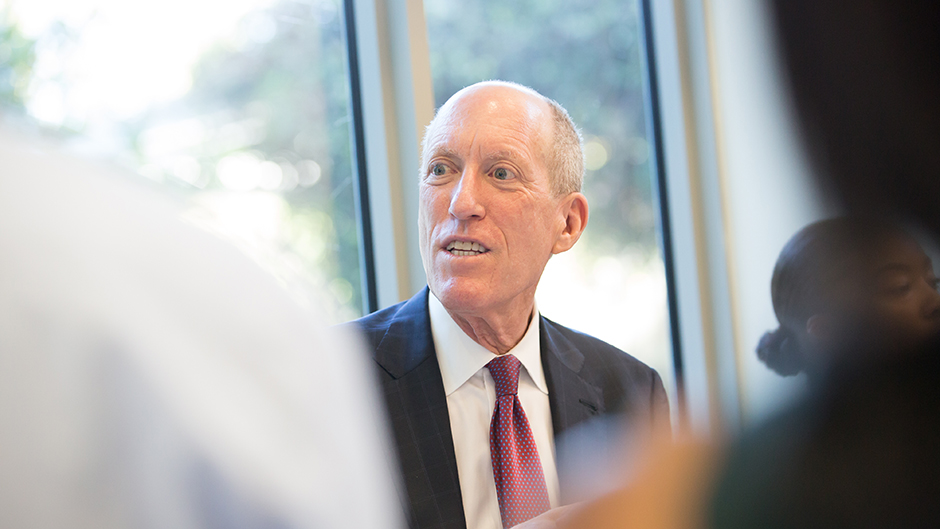As members of the University of Miami community, we have all heard President Frenk’s aspirational message that we become a hemispheric university, responsive to its community, and that UHealth lead the transformation of health care in our region. Those ambitious goals are coming together at our doorstep, as the Miller School takes a lead role in the All of Us Research Program.
The most ambitious and inclusive study ever undertaken by the National Institutes of Health, All of Us aims to recruit more than 1 million people across the nation to enroll in the project in the next five years. Because of our enormously rich and diverse patient population and our expertise in genetics and genomics, the Miller School is the lead partner in the SouthEast Enrollment Center, which was awarded $60 million to enroll approximately 100,000 patients. We are collaborating with three other institutions to contribute to what will be the richest health data resource of its kind.
What does this mean for health care? It means we, collectively as a community, are taking the first real steps toward implementing personalized medicine. Right now, we prescribe drugs, treatments and many other therapies to large groups of people with what we believe is the same disease. Only it’s not the exact same disease. Each patient’s genetic make-up influences his or her disease.
All of Us will change our approach across the entire spectrum of health care in this nation and, likely, across the globe. With the immense amount of genomic data that we will gather from this research project, biomedical researchers will be able to analyze that information – from multiple different ethnic and racial groups, including underrepresented minorities. Scientists can then use that data to better understand why each of us responds differently to specific treatments, and more importantly, to then develop more precise screenings and treatments.
We are fortunate to have such esteemed researchers as Dr. Stephan Züchner, the SEEC’s lead principal investigator who chairs UM’s Dr. John T. Macdonald Foundation Department of Human Genetics and co-directs the John P. Hussman Institute for Human Genomics; Dr. Margaret Pericak-Vance, the Dr. John T. Macdonald Foundation Professor of Human Genomics, director of the Hussman Institute and executive vice chair of the Department of Human Genetics; and Dr. Olveen Carrasquillo, professor of public health sciences and chief of the Division of General Internal Medicine, all of whose expertise led the NIH to select UM as a core site.
Utilizing our expertise in this field, along with harnessing the diversity of our population, the Miller School is demonstrating to our entire community and the region that we are leaders and indeed, hemispheric.
Edward Abraham, M.D.
Executive Vice President for Health Affairs
CEO, UHealth
Editor’s note: Dr. Abraham's message is the fourth in what will be an ongoing series of columns written by leaders from across the University.

